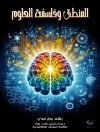For the past 200 years, Kant has acted as a lens–sometimes a distorting lens–between historians of philosophy and early modern intellectual history. Kant’s writings about Descartes, Leibniz, Locke, Berkeley, and Hume have been so influential that it has often been difficult to see these predecessors on any terms but Kant’s own. In Kant and the Early Moderns, Daniel Garber and Béatrice Longuenesse bring together some of the world’s leading historians of philosophy to consider Kant in relation to these earlier thinkers.
These original essays are grouped in pairs. A first essay discusses Kant’s direct engagement with the philosophical thought of Descartes, Leibniz, Locke, Berkeley, or Hume, while a second essay focuses more on the original ideas of these earlier philosophers, with reflections on Kant’s reading from the point of view of a more direct interest in the earlier thinker in question. What emerges is a rich and complex picture of the debates that shaped the ‚transcendental turn‘ from early modern epistemology, metaphysics, and philosophy of mind to Kant’s critical philosophy.
The contributors, in addition to the editors, are Jean-Marie Beyssade, Lisa Downing, Dina Emundts, Don Garrett, Paul Guyer, Anja Jauernig, Wayne Waxman, and Kenneth P. Winkler.
Über den Autor
Daniel Garber is professor of philosophy at Princeton University and the author of
Descartes Embodied and
Descartes‘ Metaphysical Physics.
Béatrice Longuenesse is professor of philosophy at New York University. Her books include
Kant on the Human Standpoint and
Kant and the Capacity to Judge (Princeton).












